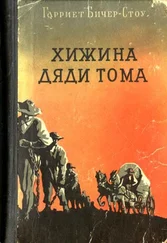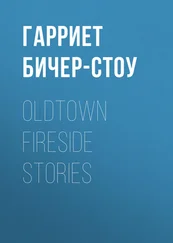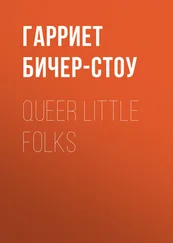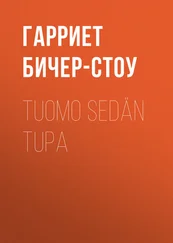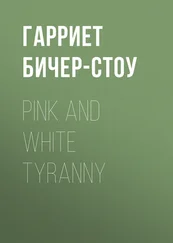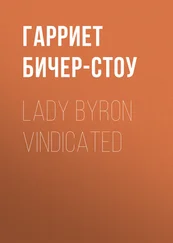Гарриет Бичер-Стоу - Sunny Memories of Foreign Lands, Volume 2
Здесь есть возможность читать онлайн «Гарриет Бичер-Стоу - Sunny Memories of Foreign Lands, Volume 2» — ознакомительный отрывок электронной книги совершенно бесплатно, а после прочтения отрывка купить полную версию. В некоторых случаях можно слушать аудио, скачать через торрент в формате fb2 и присутствует краткое содержание. Жанр: Путешествия и география, literature_19, foreign_antique, foreign_prose, foreign_children, на английском языке. Описание произведения, (предисловие) а так же отзывы посетителей доступны на портале библиотеки ЛибКат.
- Название:Sunny Memories of Foreign Lands, Volume 2
- Автор:
- Жанр:
- Год:неизвестен
- ISBN:нет данных
- Рейтинг книги:5 / 5. Голосов: 1
-
Избранное:Добавить в избранное
- Отзывы:
-
Ваша оценка:
- 100
- 1
- 2
- 3
- 4
- 5
Sunny Memories of Foreign Lands, Volume 2: краткое содержание, описание и аннотация
Предлагаем к чтению аннотацию, описание, краткое содержание или предисловие (зависит от того, что написал сам автор книги «Sunny Memories of Foreign Lands, Volume 2»). Если вы не нашли необходимую информацию о книге — напишите в комментариях, мы постараемся отыскать её.
Sunny Memories of Foreign Lands, Volume 2 — читать онлайн ознакомительный отрывок
Ниже представлен текст книги, разбитый по страницам. Система сохранения места последней прочитанной страницы, позволяет с удобством читать онлайн бесплатно книгу «Sunny Memories of Foreign Lands, Volume 2», без необходимости каждый раз заново искать на чём Вы остановились. Поставьте закладку, и сможете в любой момент перейти на страницу, на которой закончили чтение.
Интервал:
Закладка:
The first four lines of this always seem to me magnificently harmonious. But almost any verse at random in Dr. Watts's paraphrase of the one hundred and forty-eighth Psalm exceeds them, both in melody and majesty. For instance, take these lines:—
"Wide as his vast dominion lies,
Let the Creator's name be known;
Loud as his thunder shout his praise,
And sound it lofty as his throne.
Speak of the wonders of that love
Which Gabriel plays on every chord:
From all below and all above,
Loud hallelujahs to the Lord."
Simply as a specimen of harmonious versification, I would place this paraphrase by Dr. Watts above every thing in the English language, not even excepting Pope's Messiah. But in hymns, where the ideas are supplied by his own soul, we have examples in which fire, fervor, imagery, roll from the soul of the poet in a stream of versification, evidently spontaneous. Such are all those hymns in which he describes the glories of the heavenly state, and the advent of the great events foretold in prophecy; for instance, this verse from the opening of one of his judgment hymns:—
"Lo, I behold the scattered shades;
The dawn of heaven appears;
The sweet immortal morning sheds
Its blushes round the spheres."
Dr. Johnson, in his Lives of the Poets, turns him off with small praise, it is true, saying that his devotional poetry is like that of others, unsatisfactory; graciously adding that it is sufficient for him to have done better than others what no one has done well; and, lastly, that he is one of those poets with whom youth and ignorance may safely be pleased. But if Dr. Johnson thought Irene was poetry, it is not singular that he should think the lyrics of Watts were not.
Stoke Newington is also celebrated as the residence of De foe. We passed by, in our walk, the ancient mansion in which he lived. New River, which passes through the grounds of our host, is an artificial stream, which is said to have been first suggested by his endlessly fertile and industrious mind, as productive in practical projects as in books.
It always seemed to me that there are three writers which every one who wants to know how to use the English language effectively should study; and these are Shakspeare, Bunyan, and Defoe. One great secret of their hold on the popular mind is their being so radically and thoroughly English. They have the solid grain of the English oak, not veneered by learning and the classics; not inlaid with arabesques from other nations, but developing wholly out of the English nationality.
I have heard that Goethe said the reason for the great enthusiasm with which his countrymen regarded him was, that he did know how to write German, and so also these men knew how to write English. I think Defoe the most suggestive writer to an artist of fiction that the English language affords. That power by which he wrought fiction to produce the impression of reality, so that his Plague in London was quoted by medical men as an authentic narrative, and his Life of a Cavalier recommended by Lord Chatham as an historical authority, is certainly worth an analysis. With him, undoubtedly, it was an instinct.
One anecdote, related to us this evening by our friends, brought to mind with new power the annoyances to which the Quakers have been subjected in England, under the old system of church rates. It being contrary to the conscientious principles of the Quakers to pay these church rates voluntarily, they allowed the officers of the law to enter their houses and take whatever article he pleased in satisfaction of the claim. On one occasion, for the satisfaction of a claim of a few pounds, they seized and sold a most rare and costly mantel clock, which had a particular value as a choice specimen of mechanical skill, and which was worth four or five times the sum owed. A friend afterwards repurchased and presented it to the owner.
We were rejoiced to hear that these church rates are now virtually abolished. The liberal policy pursued in England for the last twenty-five years is doing more to make the church of England, and the government generally, respectable and respected than the most extortionate exactions of violence.
We parted from our kind friends in the morning; came back and I sat a while to Mr. Burnard, the sculptor, who entertained me with various anecdotes. He had taken the bust of the Prince of Wales; and I gathered from his statements that young princes have very much the same feelings and desires that other little boys have, and that he has a very judicious mother.
In the afternoon, Mr. S., Mrs. B., and I had a pleasant drive in Hyde Park, as I used to read of heroines of romance doing in the old novels. It is delightful to get into this fairyland of parks, so green and beautiful, which embellish the West End.
In the evening we had an engagement at two places—at a Highland School dinner, and at Mr. Charles Dickens's. I felt myself too much exhausted for both, and so it was concluded that I should go to neither, but try a little quiet drive into the country, and an early retirement, as the most prudent termination of the week. While Mr. S. prepared to go to the meeting of the Highland School Society, Mr. and Mrs. B. took me a little drive into the country. After a while they alighted before a new Gothic Congregational college, in St. John's Wood. I found that there had been a kind of tea-drinking there by the Congregational ministers and their families, to celebrate the opening of the college.
On returning, we called for Mr. S., at the dinner, and went for a few moments into the gallery, the entertainment being now nearly over. Here we heard some Scottish songs, very charmingly sung; and, what amused me very much, a few Highland musicians, dressed in full costume, occasionally marched through the hall, playing on their bagpipes, as was customary in old Scottish entertainments. The historian Sir Archibald Alison, sheriff of Lanarkshire, sat at the head of the table—a tall, fine-looking man, of very commanding presence.
About nine o'clock we retired.
May 15. Heard Mr. Binney preach this morning. He is one of the strongest men among the Congregationalists, and a very popular speaker. He is a tall, large man, with a finely-built head, high forehead, piercing, dark eye, and a good deal of force and determination in all his movements. His sermon was the first that I had heard in England which seemed to recognize the existence of any possible sceptical or rationalizing element in the minds of his hearers. It was in this respect more like the preaching that I had been in the habit of hearing at home. Instead of a calm statement of certain admitted religious facts, or exhortations founded upon them, his discourse seemed to be reasoning with individual cases, and answering various forms of objections, such as might arise in different minds. This mode of preaching, I think, cannot exist unless a minister cultivates an individual knowledge of his people.
Mr. Binney's work, entitled How to make the best of both Worlds, I have heard spoken of as having had the largest sale of any religious writing of the present day.
May 16. This evening is the great antislavery meeting at Exeter Hall. Lord Shaftesbury in the chair. Exeter Hall stands before the public as the representation of the strong democratic, religious element of England. In Exeter Hall are all the philanthropies, foreign and domestic; and a crowded meeting there gives one perhaps a better idea of the force of English democracy—of that kind of material which goes to make up the mass of the nation—than any thing else.
When Macaulay expressed some sentiments which gave offence to this portion of the community, he made a defence in which he alluded sarcastically to the bray of Exeter Hall.
Читать дальшеИнтервал:
Закладка:
Похожие книги на «Sunny Memories of Foreign Lands, Volume 2»
Представляем Вашему вниманию похожие книги на «Sunny Memories of Foreign Lands, Volume 2» списком для выбора. Мы отобрали схожую по названию и смыслу литературу в надежде предоставить читателям больше вариантов отыскать новые, интересные, ещё непрочитанные произведения.
Обсуждение, отзывы о книге «Sunny Memories of Foreign Lands, Volume 2» и просто собственные мнения читателей. Оставьте ваши комментарии, напишите, что Вы думаете о произведении, его смысле или главных героях. Укажите что конкретно понравилось, а что нет, и почему Вы так считаете.

